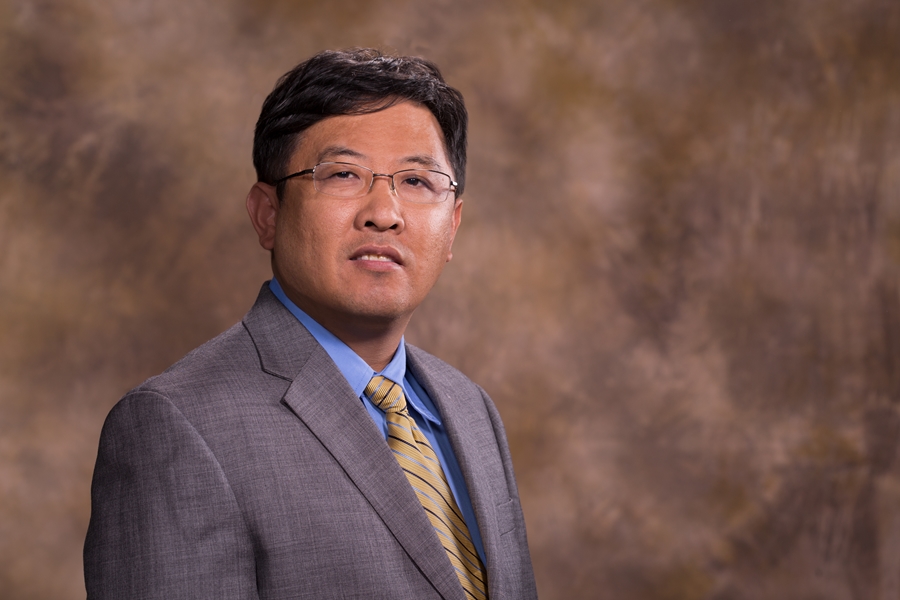FAYETTEVILLE, Ark. – University of Arkansas computer science and engineering professor Xintao Wu has received $348,758 from the National Science Foundation to conduct research on detecting fraud and cyberattacks against online social networks.
The award is part of a four-year project, “Online Social Network Fraud and Attack Research and Identification,” funded by a total of $1.2 million from the NSF Secure and Trustworthy Cyberspace program.
For this project, Wu is collaborating with Jun Li, computer science professor at the University of Oregon, and Aidong Lu, computer science professor at the University of North Carolina at Charlotte.
Online social networks such as Facebook, Instagram and Pinterest are susceptible to various types of fraud and attacks, like account impersonation, viral marketing and Sybil attacks, which forge identities across networks to subvert systems. Existing security approaches usually target a specific type of fraud or attack and often fall short of detecting more complex attacks, such as collusive attacks that involve many fraudulent network accounts or dynamic attacks that encompass multiple attack phases over time.
Wu’s project models online social network threats to identify, evaluate and analyze specific forms of fraud and attacks. The researchers will develop a defense against attack by using a spectral-analysis-based framework for detection. The system will automatically detect dynamic attacks and transform attack characteristics into distinctive visual patterns. The system will include interactive mechanisms that allow analysts to incorporate domain knowledge to handle attacks.
The research team will build a simulation framework to evaluate the detection approaches against different types of network attacks. Users can plug in different datasets to evaluate and compare different detection approaches.
The research team plans to develop a course focused on online social network attacks and defenses. Wu said the course has the potential to be offered across many institutions. To increase public-security awareness, the team also plans to develop tutorial courses on typical network attacks and how to defend against them. They intend to offer these courses at popular public events and in freshman classes. The research team will broadly disseminate their results, tools, software and documents to the research community, information-technology industries and to online social network companies.
Wu holds the Charles D. Morgan/Acxiom Graduate Research Chair in Computer Science and Computer Engineering.
About the University of Arkansas: The University of Arkansas provides an internationally competitive education for undergraduate and graduate students in more than 200 academic programs. The university contributes new knowledge, economic development, basic and applied research, and creative activity while also providing service to academic and professional disciplines. The Carnegie Foundation classifies the University of Arkansas among only 2 percent of universities in America that have the highest level of research activity. U.S. News & World Report ranks the University of Arkansas among its top American public research universities. Founded in 1871, the University of Arkansas comprises 10 colleges and schools and maintains a low student-to-faculty ratio that promotes personal attention and close mentoring.
Contacts
Xintao Wu , professor, computer science and computer engineering
College of Engineering
479-575-6519,
Matt McGowan, science and research communications officer
University Relations
479-575-4246,
